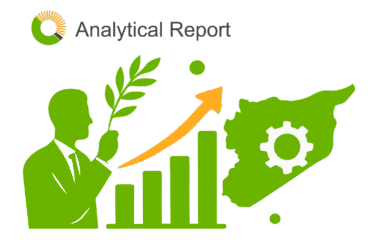
Strategic Syria Analysis: Pivotal Developments on July 14, 2025
Key Highlights:
- Signing of an agreement with DP World to develop port infrastructure worth $800 million.
- Authorities gain control of massive wildfires in Latakia with international support.
- Violent clashes erupt in Sweida amid sectarian tensions and military interventions.
- Strengthening of bilateral cooperation with Azerbaijan in the energy sector.
- Persistent security challenges threaten reconstruction efforts.
Analytical Introduction
Syria is currently witnessing crucial developments that blend regional cooperation, new government policies, and ongoing humanitarian challenges. These developments intertwine to create a complex landscape where economic reconstruction efforts accelerate alongside the maintenance of internal security, amidst multifaceted regional and international interventions.
Economic Infrastructure: Enhancing International Cooperation
Syrian Port Development: A Strategic Partnership with DP World
The General Authority for Land and Sea Ports in Syria has signed an agreement worth $800 million with DP World to develop port infrastructure and logistics services. The focus is on upgrading a multipurpose terminal in Tartus and establishing free industrial and commercial zones. This step reflects the government’s direction towards attracting foreign investment to support the depleted economy.
Humanitarian Efforts and Local Security: Gaining Control and Confronting Challenges
Controlling the Devastating Fires in Latakia
After ten days of fierce battles, authorities have finally managed to bring under control the massive wildfires that ravaged the Latakia Governorate, consuming over 15,000 hectares of forests. Syria sought international support to combat the catastrophic situation, reflecting international cooperation in humanitarian crises. Source
Sweida Conflicts: Sectarian Fighting and External Interventions
Violent clashes erupted between Druze militias and Sunni Bedouin tribes in the Sweida Governorate, resulting in over 60 deaths. This coincided with Israeli strikes targeting Syrian military tanks amidst these disturbances, highlighting the sectarian complexities and external interventions in hot zones. Source
Diplomacy and Strengthening Relations: Energy as a Gateway for Cooperation
Syrian-Azerbaijani Cooperation in the Energy Sector
Azerbaijani President Ilham Aliyev and Syrian Acting President Ahmad Al-Shara pledged to enhance bilateral cooperation, particularly in the energy sector. Discussions included plans for exporting Azerbaijani natural gas to Syria via Turkey and Azerbaijan’s potential role in rebuilding Syria’s energy infrastructure. These steps signal a warming of Syrian-Azerbaijani relations after a period of coolness. Source
Insight Syria Opinion
Syria appears to be at a crossroads, intensifying its efforts to rebuild its economy and infrastructure by relying on enhanced international cooperation and foreign investment, as seen in its agreement with DP World. Despite progress on some fronts, security challenges remain a primary obstacle, especially with ongoing internal conflicts and the interventions of regional powers. Cooperation with Azerbaijan could open a new window of opportunity towards strengthening Syria’s energy independence and rebuilding its regional relationships.
Concluding Future Outlook
As Syria looks to the future, it needs to balance reconstruction efforts with strengthening internal security and stabilizing political processes. The current situation demands meticulous monitoring of shifts in regional alliances and foreign investment endeavors, in parallel with managing recurring humanitarian and environmental crises.
Call to Action
For more detailed and customized analysis on these developments, you can rely on Insight Syria’s research and data analytics services to guide your strategic decisions.



